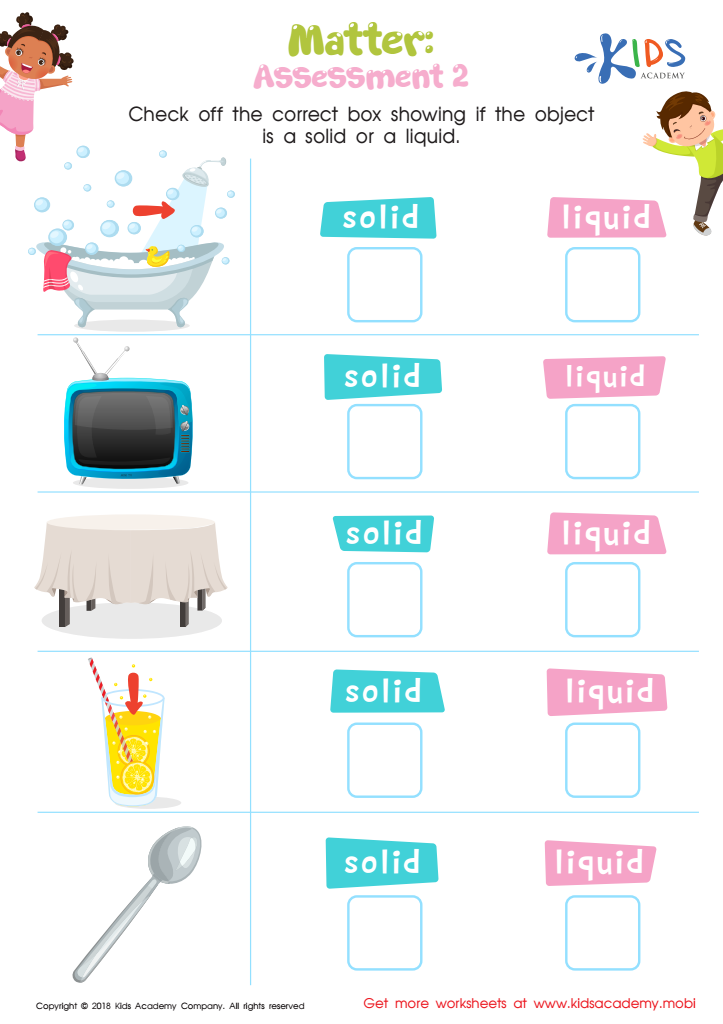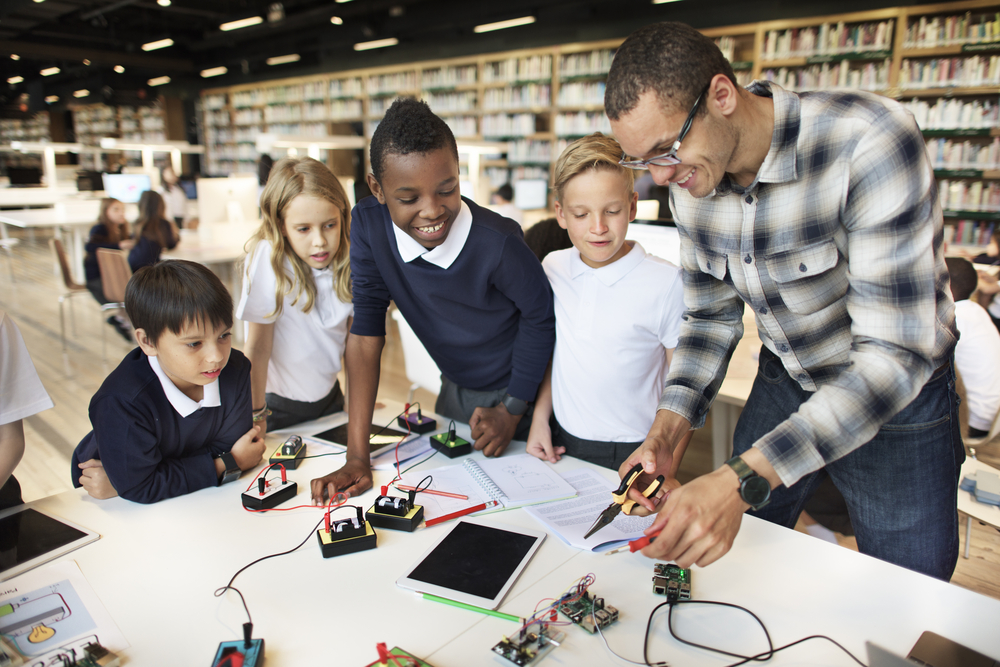Normal Science worksheets activities for Ages 4-7
10 filtered results
-
From - To
Explore our engaging "Normal Science Worksheets Activities for Ages 4-7", designed to spark curiosity and enhance learning for young explorers! Perfect for early learners, these printable worksheets encompass a variety of fun and interactive science topics, including earth science, biology, and physical science. Each activity is tailored to provide age-appropriate challenges that foster critical thinking and foundational knowledge. With colorful illustrations and relatable themes, children will enjoy hands-on learning through games and delightful exercises. Boost your child’s scientific understanding while nurturing their natural curiosity in a fun and effective way! Discover the joy of learning science with Kids Academy!


Animals and Plants: Assessment 2 Worksheet


Animals and Plants: Assessment 1 Worksheet


Ecosystems: Assessment 2 Worksheet


Ecosystems: Assessment 1 Worksheet


Space: Assessment 2 Worksheet


Space: Assessment 1 Worksheet


Light and Sound: Assessment 2 Worksheet


Matter: Assessment 2 Worksheet


Matter: Assessment 1 Worksheet


Force and Interactions: Assessment 1 Worksheet
Parents and teachers should care about normal science activities for ages 4-7 because these experiences lay a critical foundation for children's cognitive, social, and emotional development. Engaging in science activities during early childhood nurtures curiosity, critical thinking, and problem-solving skills. Children at this age naturally exhibit wonder about the world around them, and normal science activities harness this curiosity through hands-on exploration and observation.
Moreover, engaging with science activities promotes language development as children learn to articulate their observations and findings. It encourages teamwork and communication when conducted in group settings, enhancing social skills as children discuss, collaborate, and share their ideas. Working on projects together fosters respect for diverse perspectives and the importance of inquiry.
Normal science activities also align with developmental milestones, making learning enjoyable and age-appropriate. They can cover a range of topics from nature and basic physics to simple chemistry, tailored for young minds. In addition, these activities can stimulate a lifelong interest in science and STEM (science, technology, engineering, and mathematics) fields. By introducing children to fundamental scientific concepts in a fun and engaging way, parents and teachers help cultivate the next generation of inquisitive thinkers and innovators.

 Assign to My Students
Assign to My Students
















